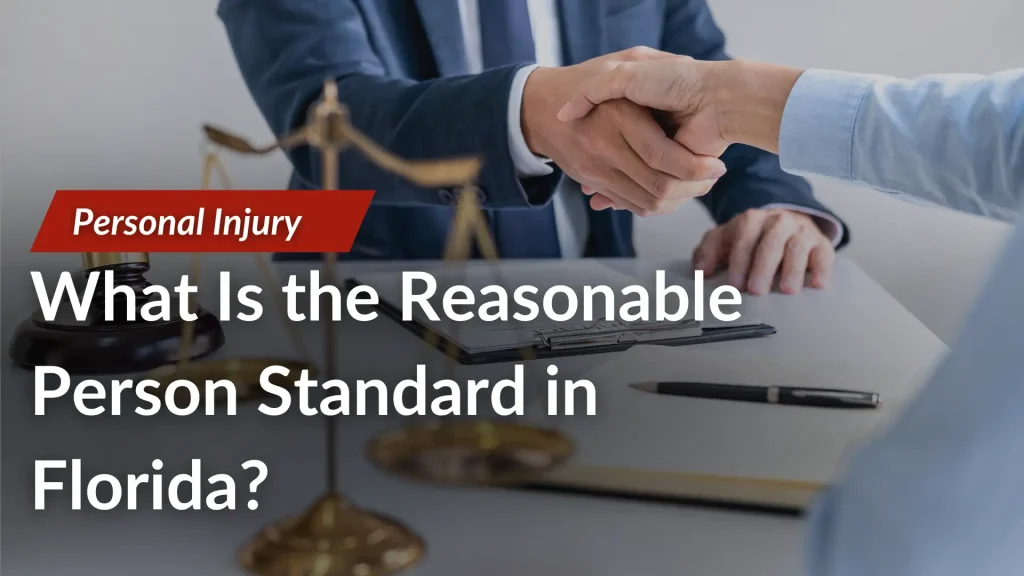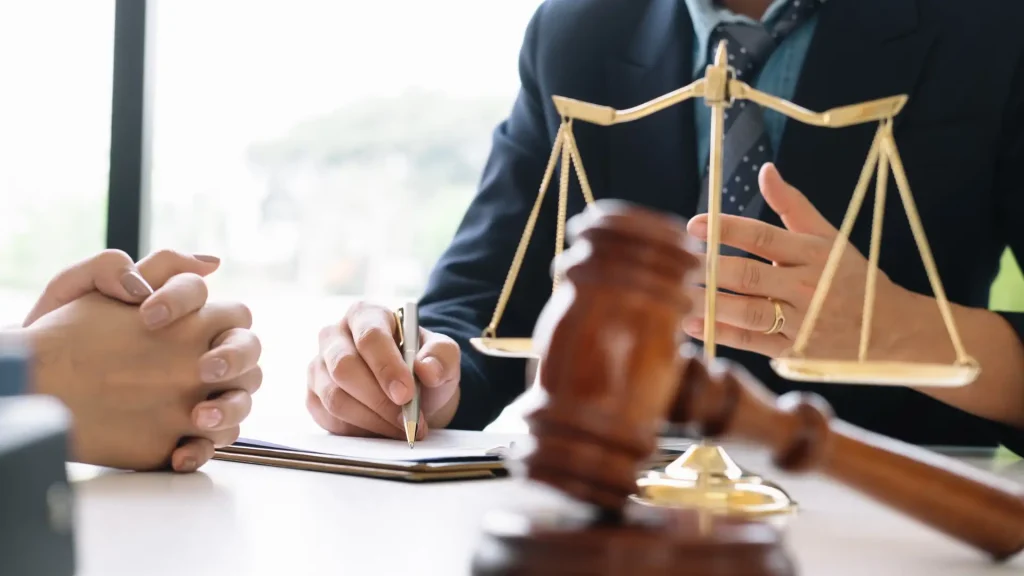 In Florida, the concept of negligence plays a critical role in personal injury cases. The reasonable person standard lies at the heart of establishing negligence. But what is the reasonable person standard, and how will it affect your claim?
In Florida, the concept of negligence plays a critical role in personal injury cases. The reasonable person standard lies at the heart of establishing negligence. But what is the reasonable person standard, and how will it affect your claim?
The reasonable person standard is a legal benchmark the courts use to evaluate whether an individual’s actions were appropriate under the given circumstances. An experienced personal injury attorney can use this legal concept to make the most of your compensation claim.
Florida’s Reasonable Person Standard
The reasonable person standard comes into play when the plaintiff argues that the defendant acted negligently. It asks whether a hypothetical “reasonable person” would act in the same way the defendant did under similar circumstances.
This standard is crucial for assessing liability in personal injury cases. It’s necessary to understand how a person or entity’s actions or inactions led to the injury. Attorneys and courts apply this standard to a wide range of cases, including car accidents, slip-and-fall incidents, and product liability cases.
The reasonable person standard is useful because it provides an objective way to assess any situation. Rather than considering the specific individual involved, it focuses on the average person.
How Does the Reasonable Person Standard Determine Negligence?
Negligence is the failure to exercise the standard of care that a reasonably competent person would in a similar situation. Determining negligence involves establishing four key elements:
- Duty of Care – The defendant owed the plaintiff a duty of care, such as a motorist needing to stop for pedestrians crossing a road
- Breach of Duty – The defendant breached this duty by failing to act as a reasonable person would, such as by not slowing down and stopping for pedestrians in the road
- Causation – The breach of duty directly caused the plaintiff’s injury, such as if the motorist struck the pedestrians in the road because they didn’t stop
- Damages – The plaintiff suffered actual harm or losses as a result, such as a broken leg from being struck by the defendant’s vehicle
The reasonable person standard comes into play primarily when assessing the second element: breach of duty. It can be fairly obvious when someone owes a duty of care, when their actions caused injury, and that the right to damages resulted from the injury. However, establishing that they acted unreasonably is the key component that can be challenging.
Criteria of the Reasonable Person Standard
Several criteria go into the reasonable person standard. When your Florida personal injury lawyer is presenting your case before a jury, they will use evidence to establish the following:
- Foreseeability – A reasonable person would have foreseen the potential for harm if presented with a situation similar to the one the defendant found themself in. For example, they would see that speeding on residential roads increases the likelihood of an accident.
- Knowledge – A reasonable person in the defendant’s position would have had certain knowledge relating to the situation. For example, a reasonable manufacturer would know that certain chemicals cause increased cancer rates and avoid using them in consumer products.
- Circumstances – What were the conditions or circumstances under which the defendant acted? How might they affect how a reasonable person would act? For example, a reasonable person would likely slow down when driving during a severe rainstorm at night. Did the defendant do this, or did they continue speeding?
- Standard Practice – What is the standard practice for the particular field or activity the defendant engaged in? Did the defendant take action that deviated from an established industry standard? Did that deviation lead to the plaintiff’s injuries?
Will the Reasonable Person Standard Impact My Case?
The reasonable person standard plays a significant role in determining the outcome of most personal injury cases in Florida. One of the main exceptions is medical malpractice. These cases use a different standard based on the level of care medical professionals owe their patients.
Understanding how this standard works can help you anticipate the strengths and weaknesses of your case. For example, suppose the defendant doesn’t satisfy one of the criteria of the standard. In that case, your attorney will focus on the others. Your goal is to show that even if the defendant didn’t tick all the boxes, they ticked enough to show that their actions were unreasonable and negligent.
An experienced personal injury attorney will know how to best demonstrate the defendant’s negligence in your case.
Examples of the Reasonable Person Standard in Action

Here are a few examples that illustrate how the reasonable person standard might apply to real-life scenarios:
- Car Accidents – In a case involving a driver running a red light, the court would consider whether a reasonable person would have stopped. In this case, failing to stop at the light likely counts as negligence. This is because a reasonable person would obey traffic laws. They will know that running a red light can lead to severe injury or death.
- Slip and Fall – If a grocery store fails to clean up a spill in one of its aisles in a timely manner and a customer slips and injures themselves, the court would examine whether a reasonable person in the store staff or manager’s position would have cleaned up the spill promptly to prevent accidents. This situation could become more complex if the store put out a wet floor sign but didn’t clean up the spill.
- Product Liability – Suppose a bicycle manufacturer releases a new bike with a known flaw that results in the chain detaching during use. The court would consider whether a reasonable person in the manufacturer’s situation would have released the bike as-is. Jurors would likely recognize that a reasonable person would fix the chain issue before releasing the bike to consumers, as it could cause injury.
Schedule a Consultation with a Florida Personal Injury Attorney
Understanding the reasonable person standard and its application to your case is essential. Still, going through the legal process can be challenging. If you believe you have a personal injury claim in Florida, contact our law firm at (619) 233-5020 or through our online form for a free consultation. During your free consultation, an experienced Florida personal injury lawyer will learn about your situation and review your options with you. Check out our awards and recent results to know why you should trust us.
Related Posts:
What Are Average Daycare Negligence Settlement Amounts in Florida?
Can You Get Punitive Damages for Negligence in Personal Injury?


